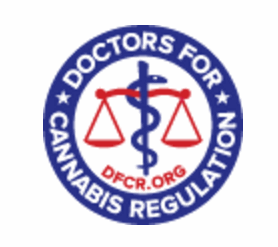Why Are Canadian Doctors Skeptical About The Benefits Of Cannabis?
Why are Canadian Doctors Skeptical on Cannabis as a Medicine? from CannabisNet on Vimeo.
A guideline has just been released, suggesting Canadian family doctors to “think twice” before prescribing cannabis use to patients.
If doctors continue this kind of reefer madness attitudes, Canadian patients won’t be able to get the medicine that they need prior to recreational legalization set sometime later this year.
The document, entitled the Simplified Guideline for Prescribing Medical Cannabinoids in Primary Care, was published early in February 2018 in Canadian Family Physician, a medical journal. According to the guidelines, there isn’t enough evidence supporting the therapeutic benefits of cannabis for several diseases. It also says that benefits may be mitigated by possible harm or side effects.
“While enthusiasm for medical marijuana is very strong among some people, good quality research has not caught up,” says Mike Allan, who heads evidence-based medicine at the University of Alberta.
The guidelines are a result of 10 researchers who worked together reviewing clinical trials. Forty more peer-reviewed the document, a team made up of pharmacists, nurses, doctors, as well as patients. They all considered the use of cannabis to treat muscle tightness and stiffness, pain, nausea, and vomiting, but also analyzed any potential side effects. According to the committee, cannabis was only acceptable given the current evidence to be used for palliative cancer pain, nerve pain, muscle stiffness due to multiple sclerosis or a spinal cord injury, and chemotherapy-associated nausea and vomiting.
According to Allan, the benefits of cannabis are MINOR.
“Medical cannabinoids should normally only be considered in the small handful of conditions with adequate evidence and only after a patient has tried a number of standard therapies,” he adds. The researchers also recommended that cannabis-based pharmaceutical drugs should be the first resort before smoking cannabis in order to better control dosage.
Jonathan Zaid, executive director of Canadians for Fair Access to Medical Marijuana, thinks that research reviews are ideal. “There have been many who have reviewed the same evidence and found different outcomes,” he says. “It’s important to consider all available options.” Zaid confirmed that cannabis is already helping over 200,000 Canadians.
Allan says that the guidelines were created for doctors, so that they have a reference point when discussing various treatment options with patients. “If you have a patient who is benefiting from nothing else, then this potentially is helpful for them,” he says. “There are patients out there who do fit that criteria.”
Although the guidelines aren’t mandated, it will be given to roughly 30,000 doctors throughout Canada.
“This guideline may be unsatisfactory for some, particularly those with polarized views regarding medical cannabinoids,” Allan added.
“Better research is definitely needed – randomized control trials that follow a large number of patients for longer periods of time. If we had that, it could change how we approach this issue and help guide our recommendations.”
Canadian Psychologists Warn About Cannabis Use
According to the Canadian Psychological Association task force, cannabis legalization may have devastating effects. Their opinions were published in Psynopsis, a pro-cannabis legalization journal.
The Canadian Psychological Association, which represents around 7,000 of the country’s psychologists, argues that teenage cannabis use “is related to poorer outcomes, lower incomes, suicidality, greater welfare dependence and unemployment.” They also claim that for the general population, cannabis brings with it a risk of increased car accidents.
Although David Teplin, an Ontario psychologist, acknowledges that “the public health burden of cannabis is evidently less than that of alcohol, tobacco, or other illicit drugs,” his article says that there is “compelling evidence” that cannabis has been linked to many side effects including dependence, cognitive impairment, pulmonary problems, and poor pregnancy outcomes.
On the contrary, a recent study conducted by Statistics Canada shows that cannabis use among teens has either decreased or remained stable. Canadians are still suffering from a form of reefer madness, even with a thriving cannabis market especially when it comes to the fear of teen use – even though US data shows that legalization hasn’t resulted in a spike among teen use.
The Statistics Canada report says that between 2004 to 2015, cannabis use was unchanged for boys aged 15 to 17 although use among women the same age decreased. “We do know from other studies pertaining to youth that factors such as fear of the consequences from parents or from the negative impact of cannabis itself could have impact on cannabis use for some people,” says Michelle Rotermann, Statistics Canada’s senior analyst for health.
The researchers also note that cannabis use decreased among women aged 18 to 24 during the same period, although increased for adults aged 25 and up.
“One of the things that’s changing is the respondents’ attitudes toward cannabis use over time, as well as perhaps their willingness to declare drug use in a survey”, Rotermann says.
Why Are Canadian Doctors Skeptical About The Benefits of Medical Marijuana from CannabisNet on Vimeo.
OTHER STORIES YOU MAY ENJOY...
MEET THE DOCTORS FOR CANNABIS LEGALIZATION, CLICK HERE.
OR..
DOCTORS SEEN NO HARM IN CANNABIS USE, READ THIS, CLICK HERE.








